A Step Forward to Financial Transaction Tax Implementation
Adelina Marini, December 9, 2015
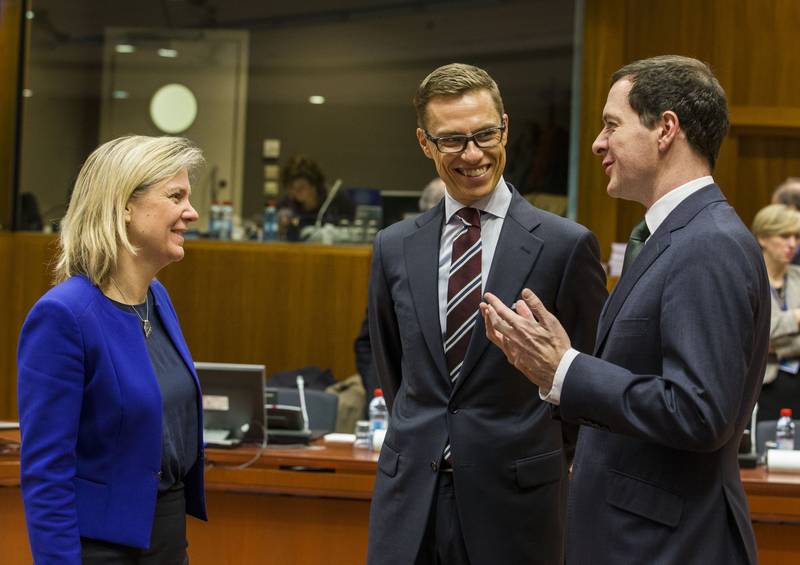 Regardless of the slow pace and multiple differences and despite losing a member, the group backing the Financial Transaction Tax (FTT) made progress during the ministers of finances’ meeting on December 8th. The main features of the future legislation under an enhanced cooperation procedure are now clear, but details are still missing. Thus, the end of this long process of negotiations is still unclear and resistance is rising. And even though there were no major dramas in the public discussion, some sharp words were exchanged. The subject appeared on the ministers’ agenda for the first time in over a year. The last debate, again public, was in November of last year when German Finance Minister Wolfgang Schäuble made a dramatic speech in which he linked the introduction of this tax with the survival of European democracy.
Regardless of the slow pace and multiple differences and despite losing a member, the group backing the Financial Transaction Tax (FTT) made progress during the ministers of finances’ meeting on December 8th. The main features of the future legislation under an enhanced cooperation procedure are now clear, but details are still missing. Thus, the end of this long process of negotiations is still unclear and resistance is rising. And even though there were no major dramas in the public discussion, some sharp words were exchanged. The subject appeared on the ministers’ agenda for the first time in over a year. The last debate, again public, was in November of last year when German Finance Minister Wolfgang Schäuble made a dramatic speech in which he linked the introduction of this tax with the survival of European democracy.
On Tuesday afternoon, he was far more composed and moderate, focusing mainly on the critics of the proposal and the ones “who make more ironic comments”. The ministers of Austria, Belgium, France, Germany, Greece, Italy, Portugal, Slovakia, Slovenia, and Spain suffered a defeat after Estonia withdrew from the procedure for enhanced cooperation, but instead the Dutch finance minister, Jeroen Dijsselbloem, who presides the Eurogroup and from January 1st will take over the 6-month rotating presidency of the Economic and Financial Affairs Council (ECOFIN), made them happy by announcing that The Netherlands is considering joining the FTT zone if there is a satisfactory answer to a key issue to the country – the pension funds.
Dijsselbloem explained that The Netherlands wants to have guarantees that the FTT will not have a negative effect on pension funds, which are a traditional part of the Dutch pension system. In his words, funds have been accumulating for generations in the second pillar of the pension system and the funds are now sizable and have a huge impact on the future of Dutch pensions. He urged the European Commission to investigate the issue thoroughly so an assessment can be made on how the effect of FTT on the pension system could be minimised. The Dutch minister warned that if a solution to this issue could not be found he would object most seriously. Dijsselbloem addressed his German colleague Schäuble personally with the words: “I'm trying to be serious and constructive, Wolfgang”. Jeroen Dijsselbloem finished by saying that this is not just a legal issue, but a political one.
Schäuble spoke in the beginning, directly addressing the ones “who make more ironic comments”. He reminded that one and the same issue is constantly on the agenda and it is how to improve regulation so that a future crisis is avoided. Moreover, there are efforts made to fight tax evasion, tax base erosion and profits shifting. “The problem is that we urgently need better regulation, but the problem is that it is so difficult to get it done.” He admitted that arguments against are valid, but the alternative is to do nothing. And the next crisis will come. No one knows when, or what will trigger it, but it will come and then we will be asked, he said, what have we learned and why did we not prevent it. The German minister admitted that the ten ministers, who dared to set foot on this road, will be strongly criticised. “They will make jokes on us”, he said further and stated again that the alternative is to do nothing.
He appealed to everyone planning to stay outside the FTT to join, so the FTT can be made a European regulation, which will exert considerable pressure on a global level. “As long [as] Europeans are divided, even in the Eurogroup cannot take a common position, will remain modest [in] what we will achieve”, he concluded. Following him spoke UK Finance Minister George Osborne, who made sarcastic remarks on Estonia’s withdrawal. He acted as if the campaign on the referendum on Great Britain’s membership in the EU has already started, stating that the decision of the ten states to implement the FTT is their own affair, as long as it does not harm others. In his words, however, what is tabled violates the EU treaties. “For example, it would mean that a UK financial institution entering a derivative contract with a German bank would have to pay your tax. And this breaches the EU treaty and it also breaches international tax law”, said Mr Osborne.
He spoke at length and with an increasingly mentoring tone. He said that the FTT will not be paid by the bankers in the EU, but by pensioners. It will affect jobs and investments. “As I say, that is your decision, but you cannot involve other member states here, who are busy trying to create jobs and attract investment and increase pensions for people”. Finally, he threatened to go to court to protect Great Britain’s rights, which annoyed Luxembourg Finance Minister Pierre Gramegna, who finds the word “court” not very reassuring. He pleaded that discussions are opened to the maximum and include all member states. Tax Affairs Commissioner Pierre Moscovici (France, Socialists and Democrats) answered George Osborne that there is not much difference between the FTT and what is happening at the moment. If a German bank goes to London, the German bank will be subject to London taxes. He did admit, however, that there are some legitimate issues, which need to be reviewed carefully.
All who spoke were unanimous that there needs to be a very careful consideration of what will be the effect on countries, which choose not to participate. Italy Finance Minister Pier Carlo Padoan expressed his conviction that successful implementation of the FTT will attract others. He urged, however, to take into consideration Osborne’s worries. Pier Carlo Padoan, as usual, was emotional regarding the effect of the reached agreement on European integration. “This has been a very complicated affair because the initial positions were much more distant. We've now reached a common ground. It shows that a compromise in Europe is possible. This is a lesson we should take transferring in other areas”, said the minister under whose presidency the discussion on the FTT was last led.
During the discussion no specific issues were discussed, with the exception of the Slovenian proposal for amendment the text of the agreement that was proposed by Austria. Slovenian Finance Minister Dušan Mramor asked for the inclusion of the text that the applicability of the tax and its ratio to the administrative costs for its implementation must be mandatory, rather than taken into consideration as is written in the text, proposed by Austria, which is chairing the workgroup on the FTT. Ljubljana’s proposal was accepted with no objections. The text is yet to gain legal form, so that discussions can continue. All member states can speak on it, but only the ten which participate in the enhanced cooperation can vote. Regardless, the most difficult task will be guaranteeing that the FTT will have no negative effects on the non-participating states.
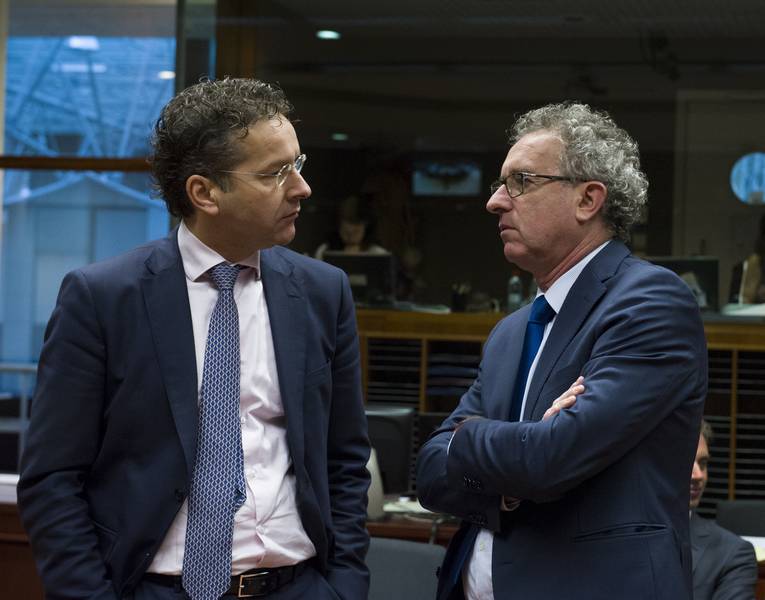
Criticism from some of the groups in the European Parliament contributed to the already not very festive mood in ECOFIN. The negotiator of the EPP group, Othmar Karas (Austria), welcomed the agreement, but criticised it for being “the lowest common denominator”. “The best would have been to include all global financial centres. The second option was an EU-wide FTT, the third option was joint action of the Eurozone”, he said and added that at the moment the fourth-best option is on the table. The group of the Greens and the European Free Alliance were far more critical. According to them, the ten ministers announced an agreement on something that is an illustration of the difficult technical negotiations of the past few years.
“Up against fierce lobbying - from the financial sector but also from member states like the UK or Luxembourg who are protecting their own financial industry - the negotiators seem to be going for a small tax and are still being vague on how many exemptions will remain and who will pay the tax in the end. There is a huge risk that in its current form the FTT will end up being paid by EU citizens when instead we want those responsible for the financial crisis to take responsibility for the crashes they created”, is said in a statement by the group, which is the most active on the Union’s financial issues.
Translated by Stanimir Stoev
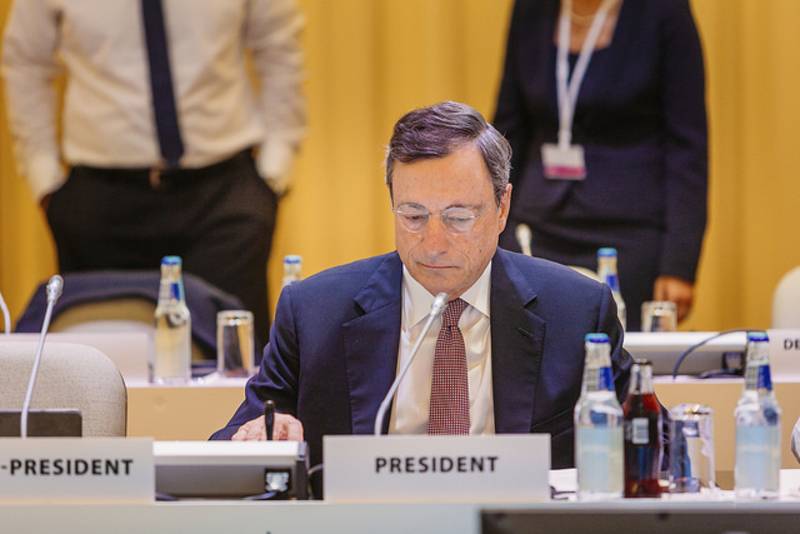 Mario Draghi | © ECB
Mario Draghi | © ECB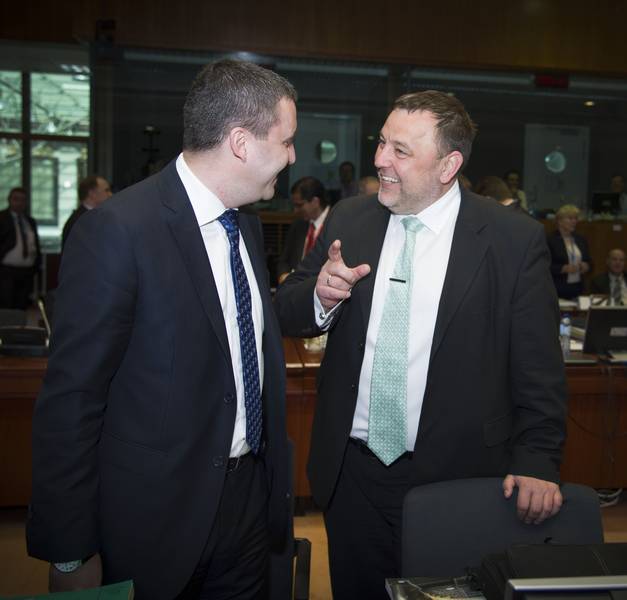 Vladislav Goranov, Sven Sester | © Council of the EU
Vladislav Goranov, Sven Sester | © Council of the EU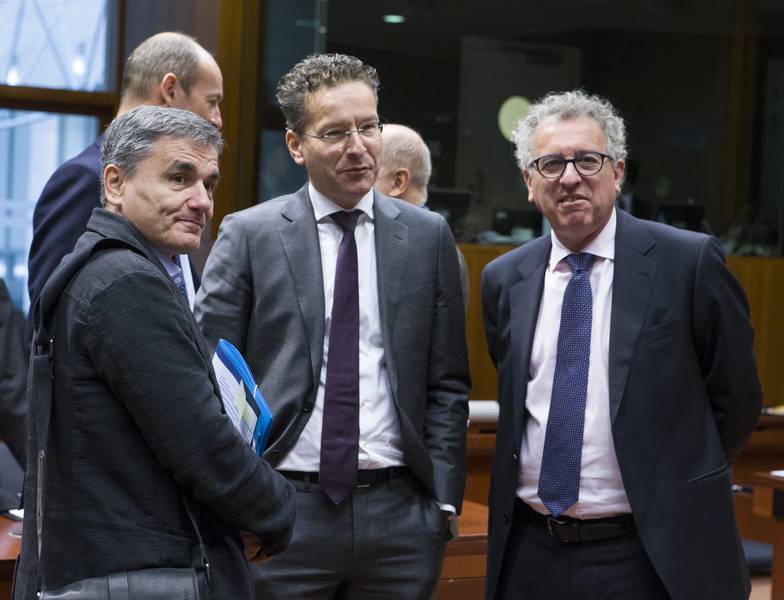 Tsakalotos, Djisselbloem, Gramegna | © Council of the EU
Tsakalotos, Djisselbloem, Gramegna | © Council of the EU